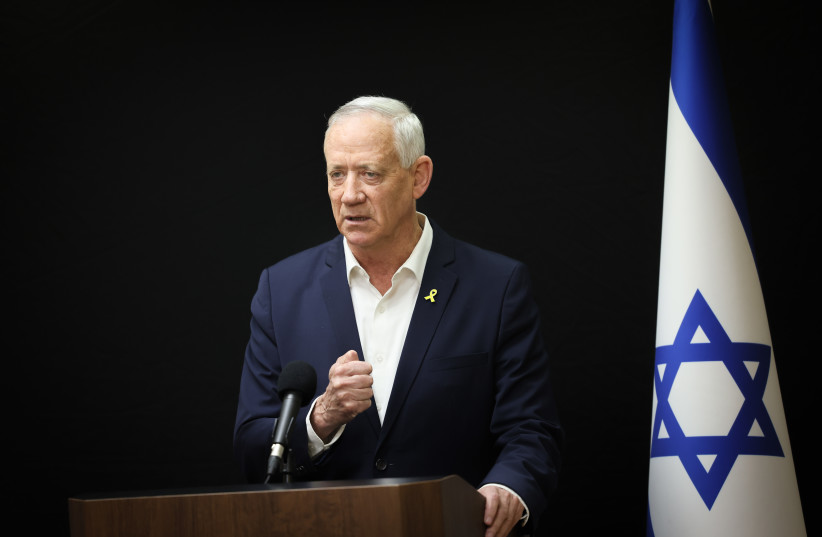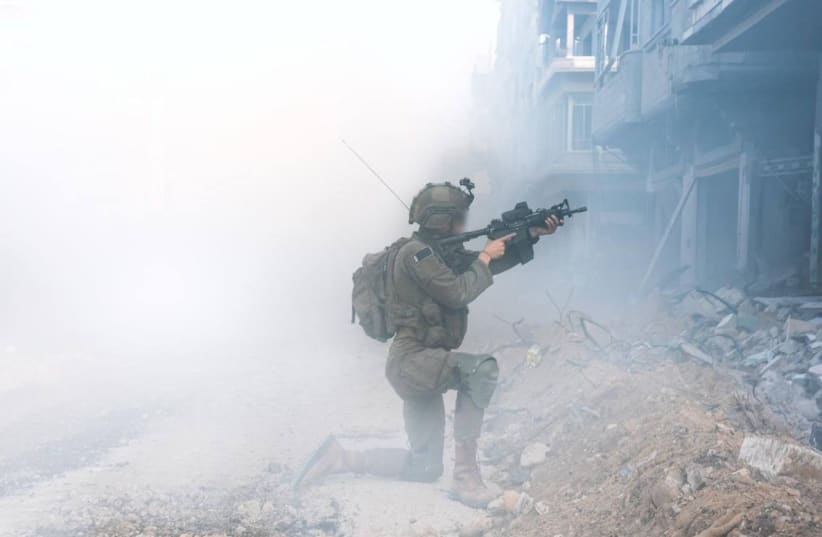The bodies of foreign aid workers killed in a mistaken identity Israeli airstrike in Gaza were brought to the crossing with Egypt on Wednesday as international outrage simmered over the attack.
The strike late on Monday night hit a convoy of three vehicles. It killed seven staff of the aid group World Central Kitchen (WCK), including citizens of Australia, Britain, and Poland, a dual citizen of the United States and Canada, as well as a Palestinian colleague, who was buried at his home.
Their deaths prompted a wave of condemnation from some of Israel's closest allies, including US President Joe Biden, who said he was "outraged" by what he said was "not a stand-alone incident."


Israel: UNIFIL forces injured in Lebanon by Hezbollah landmine
In parallel, the United Nations peacekeeping force in southern Lebanon said on Wednesday that an incident this past weekend in which three UN observers and their translator were wounded was not caused by "direct or indirect fire."
Prior to that statement, the IDF put out a statement saying that the explosion that harmed the UNIFIL forces was caused by a landmine set by Hezbollah.
#عاجل حسب المعلومات المتوفرة لدى جيش الدفاع فالانفجار الذي وقع السبت الماضي (30/3) في #رميش والذي أسفر عن إصابة عدد من عناصر قوات اليونيفيل الدولية ناجم عن تعرض دورية #اليونيفيل لتفجير عبوة ناسفة كان قد زرعها #حزب_الله في هذه المنطقة سابقًا pic.twitter.com/lnK4br5isc
— افيخاي ادرعي (@AvichayAdraee) April 3, 2024
The four members of the UN's technical observation mission in southern Lebanon were wounded as they were carrying out a foot patrol in south Lebanon, where Hezbollah has been trading fire with the Israeli military across the border.
Two security sources had told Reuters at the time of the incident that the observers were wounded in an Israeli strike outside the border town of Rmeish.
Lebanon's caretaker Prime Minister Najib Mikati had condemned on Saturday the "targeting" and wounding of UN staff in southern Lebanon, according to a statement from his office.
However, even at the time, the IDF made it clear that this was not possible as it had not fired anywhere near that area.
Andrea Tenenti, spokesperson for the UN peacekeeping mission UNIFIL, said its "preliminary investigation showed that the incident was not caused by direct or indirect fire onto the group of UNTSO observers and their translator."
"The investigation to determine the exact cause of the blast is ongoing," he told Reuters.
UNIFIL is known for avoiding explicitly blaming Hezbollah so as not to endanger its ability to operate in the area.
Even in incidents where Hezbollah forces openly killed some UNIFIL troops, the peacekeeping organization allowed the terror group to claim that the forces were rowdy villagers unaffiliated with it.
The observers were from Chile, Australia, and Norway, while the translator was Lebanese.
Israel's shelling of Lebanon has killed over 300 terrorists. Reuters alleged that the IDF has also killed around 50 civilians, though it was unclear what this total was based on.
There is at least one well-known incident where the IDF mistakenly and accidentally killed identifiable journalists, including Reuters reporter Issam Abdallah, when the media personnel were in an area that intelligence said was clear of anyone other than Hezbollah.
Benny Gantz: Israel and Hamas will continue to battle for many years
Meanwhile, National Unity MK and war minister Benny Gantz said in an address to the Israeli public on Wednesday evening that Israel and Hamas will continue to battle for many years.
Gantz said that Israel's top security priority was to change the reality on the northern front against Hezbollah.
"Our goal is to ensure all northern residents will return to their homes safely as early as this summer."


Despite that sooner timeframe for concluding the conflict in the North, Gantz said that the IDF will need to continue its fight against Hamas "for many years."
It was unclear whether Gantz was anticipating significant continued hostilities as there are now or whether he was referring to an extended lower-key insurgency, something IDF officials have alluded to.
Estimates for a Hamas insurgency have run from three months from early February to all of 2024 to years, as Gantz and some other generals have said.
Earlier Wednesday, the Israeli Air Force attacked Hezbollah positions and infrastructure in southern Lebanon’s Kfarhamam.
According to the IDF, one of the positions it attacked had been used to fire rockets at the Mount Dov area only minutes earlier.
In addition, the IDF said it struck Hezbollah positions in Blida and Aynata last night as well as shelling areas near Ayta ash-Shab earlier Wednesday.
Separately, the IDF and the Shin bet announced on Wednesday that during its recent second take over of Shifa Hospital in northern Gaza that it had captured Hamas Deputy Intelligence Collection Chief Ashraf Ibrahim Samur.
According to the Shin Bet, Samur gave highly descriptive explanations about exactly how Hamas structured its operations within Shifa.
Also, IDF soldiers continued fighting in the al-Karara and Absanim areas of Khan Yunis in southern Gaza.
Aided by an aircraft, the forces killed terrorists using tank and sniper fire and unearthed underground terror infrastructure.
During raids on Hamas’s terror infrastructure, troops found and confiscated weapons, among which the military listed cartridges and ammunition, mortar bombs, explosives, and military equipment, along with a manual explaining how to operate weapons.
In addition, the military stated that the forces had found documents of significant intelligence value, though it did not specify more details.
In the middle of a civilian olive grove, soldiers found and subsequently destroyed a rocket launcher.
In the past week, troops arrested several suspects entrenched in the vicinity.
The suspects were transferred to the intelligence unit and the Shin Bet (Israel Security Agency) for further interrogation, the military noted.
The IDF announced late Wednesday night that it had called up reservists for its air defense units.
The announcement appeared to be a precaution in the event of a significant rocket attack from Hezbollah or its proxies following the killing of top Iranian IRGC official Mohammad Reza Zahedi earlier this week, allegedly by Israel.
Jerusalem Post Staff contributed to this report.
